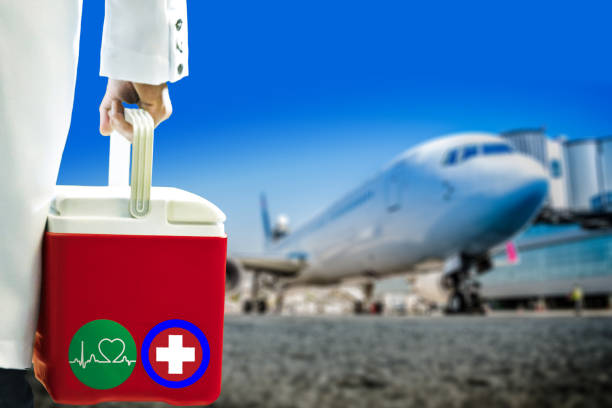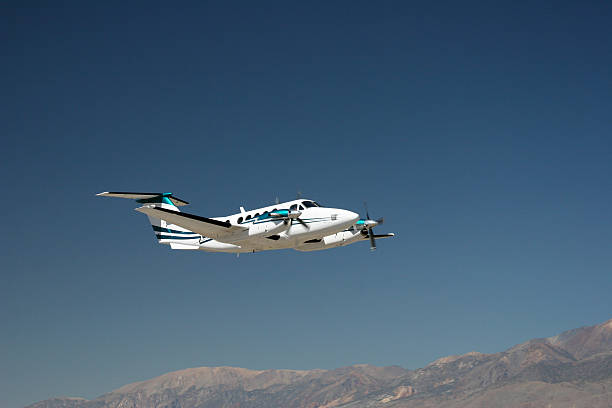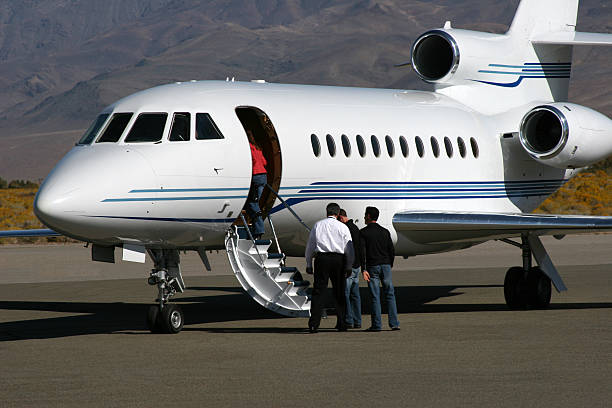Organ Transport Jet Services in New York: ParaFlight's Expert Coordination

When every second counts in the race to save a life, New York's organ transport infrastructure stands as a beacon of hope for thousands of patients awaiting life-saving transplants. At the heart of this critical network lies specialized aviation coordination services like ParaFlight, whose expert brokerage ensures that precious organs reach their destinations through partnerships with FAA-certified operators who provide the speed, precision, and reliability that can mean the difference between life and death.
The Critical Need for Organ Transport in New York
According to the United Network for Organ Sharing (UNOS), New York State processes over 2,500 transplant procedures annually across its medical centers¹. UNOS data shows New York consistently ranks among the top five states for organ transplant volume, making efficient transport coordination not just beneficial, but absolutely essential to the state's healthcare infrastructure.
The numbers tell a sobering story: according to the Health Resources and Services Administration, every 10 minutes someone is added to the national transplant waiting list, and 17 people die daily waiting for an organ transplant². Current UNOS data indicates that over 10,000 individuals in New York are waiting for life-saving organ transplants, with kidneys, livers, and hearts representing the most critical needs¹.
Time constraints are critical in organ transplantation. Medical literature indicates hearts must be transplanted within 4-6 hours of procurement, livers within 8-12 hours, and kidneys within 24-36 hours³. These narrow windows leave no room for transportation delays, weather-related disruptions, or mechanical failures. This is where specialized organ transport coordination services like ParaFlight become literally a matter of life and death.
ParaFlight: New York's Premier Organ Transport Coordination Service
ParaFlight has established itself as New York's leading coordinator for emergency organ transport, working exclusively with FAA-certified operators who maintain comprehensive fleets of aircraft specifically equipped for medical missions. Unlike standard charter brokers, ParaFlight specializes in coordinating with operators whose aircraft are purpose-built for medical emergencies, featuring specialized equipment and protocols designed to maintain organ viability during transport.
Coordinated Aircraft Network
ParaFlight maintains relationships with FAA-certified operators who provide access to diverse fleets ranging from light aircraft for regional transport to heavy jets capable of cross-country flights. ParaFlight coordinates with operators who ensure appropriate aircraft selection based on mission requirements, including:
- Climate-controlled cargo compartments for temperature-sensitive medical cargo
- Reliable communication systems for coordination with transplant teams and ground personnel
- Pressurized cabins suitable for time-sensitive medical transport
- Professional flight crews experienced in medical mission protocols
- 24/7 dispatch availability with aircraft positioned strategically across the Northeast region
When specialized medical equipment is required, ParaFlight coordinates with operators who can provide portable preservation systems and monitoring equipment as needed for the specific transport mission.
The ParaFlight Concierge Advantage
What sets ParaFlight apart in the organ transport coordination market is their understanding that organ transport isn't just about arranging flights from point A to point B—it's about orchestrating hope and delivering miracles through expert coordination. Their specialized concierge approach includes:
Expert Medical Coordination: ParaFlight works exclusively with FAA-certified operators whose flights are staffed with medical professionals trained specifically in organ transport protocols, ensuring that organs remain in optimal condition throughout the journey.
Rapid Response Coordination: ParaFlight maintains relationships with aircraft operators who keep planes on standby 24/7, coordinating missions that can be airborne within 30 minutes of receiving a transport request.
Weather Resilience Management: ParaFlight's network includes operators with aircraft equipped for all-weather conditions, minimizing the risk of delays due to adverse conditions that could compromise organ viability.
Comprehensive Logistics Concierge: Beyond coordinating transport, ParaFlight manages communication with hospitals, transplant teams, and ground transportation through their partner operators to ensure seamless delivery.
The Economics of Organ Transport Aviation
The financial implications of organ transport extend far beyond the immediate cost of the coordinated flight. Industry estimates suggest organ transport flights range from $15,000 to $50,000, depending on distance and aircraft type. While this may seem substantial, the economic value of a successful transplant is immeasurable when considering the long-term healthcare costs avoided and the productive life years restored.
According to the National Institute of Diabetes and Digestive and Kidney Diseases, a successful kidney transplant can save the healthcare system over $400,000 in dialysis costs over a decade³. Heart transplants, while more expensive initially, can provide recipients with 10-15 additional years of life based on medical literature. From this perspective, the cost of specialized organ transport coordination represents one of the most cost-effective investments in modern healthcare.
ParaFlight's concierge pricing model reflects the urgency and specialized nature of organ transport coordination. These services are typically covered by the recipient's insurance, as organ transport is considered an essential component of the transplant procedure rather than an optional service.
Current Technology in Organ Transport
The organ transport industry utilizes established technological advances, and ParaFlight coordinates with operators positioned at the forefront of these proven innovations. Modern organ transport goes beyond simple refrigerated transport, incorporating established preservation technologies that extend organ viability and improve transplant outcomes.
Established Preservation Systems
ParaFlight coordinates with operators whose aircraft feature proven organ preservation systems, including:
- Hypothermic machine perfusion devices that continuously circulate preservation solution through organs
- Real-time monitoring systems that track organ temperature, perfusion pressure, and other critical parameters
- Satellite communication systems that allow medical teams to monitor organ status during flight
- GPS tracking that provides transplant centers with accurate arrival time estimates
Route Optimization and Logistics
ParaFlight employs established logistics coordination to optimize flight routes and minimize transport times. Their coordination considers factors such as:
- Current weather conditions and forecasts
- Air traffic control delays
- Ground transportation logistics at both origin and destination
- Hospital scheduling and operating room availability
This comprehensive coordination approach helps ParaFlight maintain strong performance standards for organ transport missions, though specific performance metrics vary based on operator capabilities and environmental factors.
Regulatory Framework and Safety Standards
Organ transport aviation operates under stringent regulatory oversight from multiple agencies, including the Federal Aviation Administration (FAA), the Food and Drug Administration (FDA), and the Department of Transportation (DOT). ParaFlight coordinates exclusively with operators who maintain certifications and compliance with all relevant regulations, including:
FAA Part 135 Certification
All operators in ParaFlight's network maintain Part 135 certification, which requires:
- Regular aircraft inspections and maintenance
- Pilot training and recurrency requirements
- Operations manual approval
- 24/7 dispatch and flight following services
Medical Device Compliance
The specialized equipment used in organ transport falls under FDA medical device regulations. ParaFlight coordinates with operators who ensure all preservation equipment is properly maintained, calibrated, and operated according to manufacturer specifications and regulatory requirements.
Chain of Custody Coordination
Organ transport requires meticulous documentation and chain of custody procedures. ParaFlight coordinates detailed record-keeping through their operator partners for every transport, including:
- Organ procurement and packaging documentation
- Temperature and preservation logs
- Flight time and route information
- Delivery confirmation and recipient hospital verification
Challenges Facing Organ Transport Coordination
Despite advances in technology and logistics, organ transport coordination faces numerous challenges that require constant attention and innovation.
Weather-Related Coordination Challenges
New York's variable weather patterns present ongoing challenges for organ transport operations. Winter storms, summer thunderstorms, and fog can ground aircraft or force lengthy route deviations. ParaFlight addresses these challenges through:
- Coordinating with multiple aircraft operators to provide backup options
- Advanced weather monitoring and forecasting coordination
- Partnerships with ground transportation providers for alternative delivery methods
- Flexible routing coordination that can adapt to changing conditions
Airport Access and Ground Handling Coordination
Major airports like JFK, LaGuardia, and Newark can experience significant delays due to high traffic volumes. ParaFlight mitigates these issues by:
- Coordinating with operators who maintain relationships with smaller regional airports for faster access
- Working with operators who pre-position aircraft at strategic locations
- Coordinating with airport operations centers for priority handling through partner operators
- Utilizing operators with access to private terminals to expedite ground operations
Cost Management Coordination
The high cost of specialized organ transport can create financial barriers for some patients and healthcare systems. ParaFlight works to address cost concerns through:
- Coordinating flexible pricing models based on distance and urgency
- Facilitating partnerships between operators and insurance providers and healthcare systems
- Coordinating bulk transport agreements for high-volume transplant centers
- Efficient routing coordination to minimize flight times and costs
Future Innovations in Organ Transport
The organ transport industry continues to evolve, driven by advancing technology, changing regulations, and growing demand for transplant services. Several innovations may shape the future of organ transport coordination in New York and beyond:
Expanded Machine Perfusion Technology
Traditional cold storage preservation is increasingly being supplemented or replaced by machine perfusion systems that maintain organs at body temperature while circulating oxygenated preservation solutions. This developing technology may extend organ viability and allow for longer transport distances and times in the future.
Future Drone and Unmanned Aircraft Systems
While still in experimental stages, drone technology shows future promise for organ transport over shorter distances. Several successful test flights have demonstrated the potential feasibility of using unmanned aircraft for kidney and liver transport, which could potentially reduce costs and improve response times for regional transports in coming years.
Developing Artificial Intelligence and Predictive Analytics
AI systems are being developed that may predict organ availability, optimize transport routes, and improve matching between donors and recipients. These future systems could potentially revolutionize organ allocation and transport logistics, possibly saving more lives through improved efficiency.
Expansion of Coordination Networks
Growing demand for organ transplants is driving expansion of coordination networks and partnerships between aviation providers, hospitals, and organ procurement organizations. ParaFlight continues to expand its operator relationships and coordination capabilities to meet this growing need.
Choosing the Right Organ Transport Coordinator
For hospitals, organ procurement organizations, and transplant centers, selecting the right organ transport coordinator is a critical decision that directly impacts patient outcomes. When evaluating organ transport coordination services, key factors to consider include:
Experience and Specialization
Look for coordinators with specific experience in organ transport rather than general aviation brokerage. ParaFlight's specialized focus on organ transport coordination ensures their team understands the unique requirements and challenges of this critical service.
Operator Network Capabilities
Ensure the coordinator maintains relationships with diverse operator fleets capable of handling various transport distances and weather conditions. Single-operator relationships may lack the redundancy needed for emergency situations.
Safety Record Coordination
Review the coordinator's track record with operator safety, including their vetting processes for accident history, regulatory compliance, and pilot training standards. Organ transport requires coordination with the highest safety standards given the critical nature of the mission.
Technology Integration Coordination
Modern organ transport requires coordination with operators using advanced preservation and monitoring technology. Evaluate coordinators based on their operator network's equipment capabilities and investment in proven technologies.
24/7 Coordination Availability
Organ procurement operates around the clock, requiring coordinators who maintain true 24/7 availability with rapid response capabilities through their operator networks.
Conclusion: ParaFlight's Commitment to Coordinating Life-Saving Missions
As New York continues to lead the nation in organ transplant procedures, the importance of reliable, efficient organ transport coordination cannot be overstated. ParaFlight's dedication to this critical mission extends beyond mere flight arrangement—they serve as guardians of hope, coordinating with FAA-certified operators to ensure that life-saving organs reach their destinations safely and on time.
ParaFlight's investment in specialized coordinator expertise, operator relationships, and advanced logistics systems reflects their understanding that organ transport coordination is not just a business—it's a calling. Every coordinated flight carries with it the hopes and dreams of patients and families, the expertise of medical teams, and the possibility of miracles.
Looking ahead, ParaFlight continues to innovate and expand their coordination capabilities, always with the goal of saving more lives and giving more families the gift of hope through expert aviation coordination. In a world where seconds can mean the difference between life and death, ParaFlight's concierge coordination stands ready to deliver miracles, one expertly arranged flight at a time.
For healthcare providers seeking reliable organ transport coordination services in New York, ParaFlight represents more than just another aviation broker—they are expert partners in the mission to save lives and restore hope to families facing their darkest hours. When every second counts, ParaFlight's concierge coordination is indeed ready.
References
- United Network for Organ Sharing (UNOS) - National Data
- Health Resources and Services Administration - Organ Donation Statistics
- National Institute of Diabetes and Digestive and Kidney Diseases - Kidney Transplant
- Federal Aviation Administration - Medical Transport Operations
- American Transplant Foundation - Transplant Statistics















